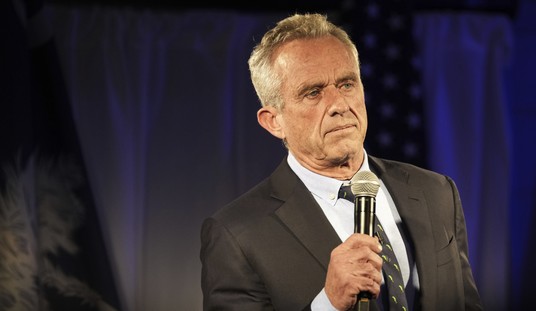Another year and June 19th has rolled around, marking the 59th anniversary of the execution of Ethel and Julius Rosenberg. Decades ago, one could count on the legions of the American Left to come out for an annual event commemorating their execution, and renewing their pledges to prove the spy couple’s innocence. Undoubtedly, their two sons, Michael and Robert Meeropol, will continue to wage their campaign depicting their parents’ spy activities as the work of well-meaning radicals who only wanted peace, and to deny that their parents had anything to do with atomic espionage. As their younger son Robert told The New York Times, “Ethel was not a spy and Julius was ignorant of the atomic bomb project.” While acknowledging that he now believes his father was “not so innocent,” he argues that spying for the Soviets was “not such a bad thing,” and that the real condemnation should be of the United States government, which fabricated evidence, suborned perjury, manipulated the jury, and wrongfully executed two essentially innocent victims.
Now, two articles appear on the anniversary of their execution. The first is an eloquent, moving and powerful article originally appearing one year ago, and featured again today at Jewish Ideas Daily. Written by the scholar and journalist Alex Joffe, the piece’s discussion of “Jews, Communism and Espionage” is must reading for anyone who wants to comprehend the significance of the recurring denial about the guilt of the Rosenbergs. Joffe writes:
Supporters of the Rosenbergs had always admitted their membership in the Communist party — touting this, however, as evidence not of their guilt but of their virtue: at a time when the “capitalist” nations had been doing nothing to oppose Hitler, the Rosenbergs were staunch anti-fascists as well as upholders of the higher ideals of equality and social justice embodied in the Communist revolution and the Soviet experiment. When pressed, supporters would concede that some, like Greenglass, may have been guilty of espionage, but not Julius and Ethel. Now, this pillar of the argument having been knocked out from under them, they have fallen back on the insistence that what the Rosenbergs did was good, just, and necessary, performed by two citizens of the world in support of a wartime ally. The real villain of the piece was not the Rosenbergs; it was the U.S. government.
Joffe’s remarks, as I have noted, are confirmed by the explanations regularly offered by the Meeropols. He acknowledges, as I have from the beginning of my work on this case, the misdeeds of the U.S. government and its prosecutorial counsels. But as Joffe writes,
to transform the fact of American misconduct into the focal point of the entire narrative is to engage in the same sort of subterfuge that the Rosenbergs’ defenders perfected in the 1950s with such striking success among liberals and intellectuals, turning on its head the widespread and well-founded alarm over internal subversion and discrediting the cause of anti-Communism itself.
No matter, the case will continue forever to be a “fetish of the American Left,” as Joffe so well puts it, “Exhibit A in its indictment of American evil.” And it is no accident — as the comrades always used to say — that the case is consistently invoked as an example to reveal that the same hysteria exists in our own day, and hence one should dismiss those who have any concern with domestic terrorism and Islamist extremism as current day practitioners of what used to be called “Cold War hysteria.”
And here is Joffe’s stunning conclusion to his article:
As compared with the phenomenon of Nazism, still vividly present in modern consciousness, the vast, blood-soaked, and no less openly anti-Semitic tyranny that was Soviet Communism has been largely erased from mind. When it comes to individuals like the Rosenbergs, whose service to that tyranny involved high crimes against their fellow American citizens, technical guilt may now be grudgingly acknowledged but, for the most part, moral guilt is not. To the contrary, the alleged nobility of their motives is held to trump the all too evident evil of their actions. To the extent that American Jews sympathize with such perversions of morality, they owe themselves, and their fellow Americans, a reckoning.
The second article, just made available on the internet, is one that I have written for World Affairs Quarterly, “A Tale of Two Trials:Soviet Propaganda at Home and Abroad.” It is based on a talk I presented a year ago at the Institute for the Study of Totalitarian Regimes” in Prague, the Czech Republic. I discuss the often ignored differences between a real show trial — such as that staged by the Stalinist regime in Prague that occurred the same time as the Rosenberg trial — and the Rosenberg case in the United States.
In the conclusion to the article, I write:
All of this now seems very far away, even farther than sixty years ago. Yet these two events show how the Soviets and their allies in the US ran a propaganda campaign on our own soil that convinced many Americans to adopt its themes and fight on behalf of a couple who indeed were, just as the US prosecutors claimed, spies for the Soviet Union. The KGB was able to use the Rosenbergs to offset the injustice of the Slansky trial and counter the anti-Semitism at its heart while also creating anti-American sentiment in Europe…. Meanwhile, members of the French left, as we now know, not only did and said nothing about the Slansky verdict, but worked hard to make it disappear — almost as hard as they worked to inflate the Rosenberg trial to epic proportions as a way of prosecuting America for exactly the kind of crimes that the Soviets had committed.
And yet, it is always surprising to see how learned people do not comprehend this. Recently, in the web pages of no less than The Jerusalem Post, David Turner actually wrote a blog which he titled “The Rosenberg Show Trial,” in which he asserts that the United States “used the courts to pursue political ends.” According to Mr. Turner, the government knew that the only thing Rosenberg gave to the Soviets was information about radar, “not the bomb.” Of course, none of this is true. Yet ignorance of the facts does not stop someone like Mr. Turner from using the case as a vehicle for his campaign to free Jonathan Pollard.
Next year, the 60th anniversary of their execution, I will undoubtedly once again return to this issue, of which by now, I am rather sick and tired. Michael Meeropol has indicated he is getting ready to give major speeches on the case, and both sons have a steady career touring college campuses where they give this new generation’s students misinformation about the case on a regular basis. Both men have refused to meet me or others in recent forums to which they were extended an invitation, preferring instead to talk only to gullible students who learn about the case from them, or to talk only to their fellow true believers at friendly forums of their own choosing.
The fight to establish the truth of the Rosenberg case, so important for the symbols it reflects, will not come to an end until their dwindling defenders disappear or decide to give up their forlorn effort.









Join the conversation as a VIP Member